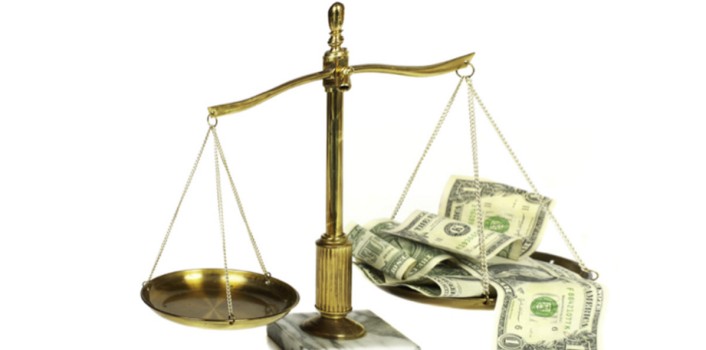In an earlier post we talked about the importance of tracking all expenses in order to get a clear picture of where our money is going. Without a good sense of what we are spending money on (and when) it’s difficult to make an accurate and useful budget.
Once we have a complete list of expenses, preferably spanning multiple months, then we can start combing through our costs and looking for things we can change. Often times people will look at the big costs, large items on the expense sheet, and look at ways to reduce them. This is a good place to start. Eliminating or reducing big costs can certainly be a great help in making a balanced budget. The problem with trying to trim large costs is that our biggest expenses are often necessities – things like housing, food, and heat.
Another approach we can take is to look for small, repeating costs and try to reduce or eliminate those. Small costs are often luxuries, things we don’t need, but enjoy. Typically one small luxury or treat is inexpensive, but when we indulge in them frequently they can add up to a large total cost.
As an example, one of my former co-workers used to purchase coffee for our weekly team meetings. It was a relatively inexpensive purchase of $20 which the rest of the team appreciated. So it seemed like a little thing, a small cost to pay for some good will in the office. However, $20 per week is about $1,000 every year. After five years of meetings he’d have spent enough to send his daughter to a local college for a year.
I’m guilty of this sort of thing too. I used to buy a chocolate bar most work days to act as a dessert. This small $1.50 treat to perk up my work day was a little more affordable than my friend’s coffee gesture, but it still cost me about $375 every year. Another friend had a more expensive pastime of sharing a few bottles of wine with friends each weekend. Her weekly contribution to their wine and snacks bonding experiences were around $25 each week or $1,300 each year.
I used to work with a guy who smoked about a pack of cigarettes a day. At about $15 a pack that ran him a bill of $5,500 every year, around $55,000 every ten years. If he’d managed to quit smoking for ten years he could have put his son through four years of university.
As a final example, a friend recently went through a big change in life and was looking to start fresh on a number of fronts. She was changing jobs, paying off debt, and living more healthy. The debt part looked tricky. She had over $8,000 in credit card debts and was considering how long it was likely to take to pay them off. When we sat down and looked at the budget we worked out that if she went ahead with her plan of giving up smoking, drank with friends half as often, and discontinued her cable TV package, she’d save about $8,000 every year. She could be debt free within 14 months, just with the money she’d save by reducing some habits and playing board games instead of watching TV!
My point is, little extras add up over time. Each individual purchase – each drink, movie ticket, chocolate bar, ice cream cone, and cup of coffee – is small. What gets us is the cost over time. Most of us live for multiple decades, often working 40 to 50 years of our lives. The little choices we make – where to eat, how to enjoy little treats, activities we spend money on with friends – they grow like little snowballs rolling downhill.
This isn’t to say we shouldn’t have little extras, happy vices, or tasty treats. I’m a big fan of enjoying guilty pleasures. We should just be aware of how much we’re spending in the long term when these little items become habits. So when looking at the list of expenses, don’t just look at the big, expensive items and ponder how to cut them down. Also look for patterns of tiny purchases, the little snack here, the movie ticket there, the energy drink after a run, the lunches out with co-workers. These add up quickly and reducing their frequency can help a lot when balancing a budget.

Comments are closed, but trackbacks and pingbacks are open.